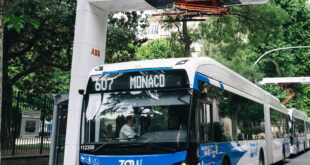It has been revealed that merely two percent of Nigeria’s population can afford to buy new vehicles, given the current economic challenges and financing environment. It is also estimated that approximately 10% of vehicles imported to Nigeria are brand new as new vehicles remain out of reach for most Nigerians, with the largest share of current vehicle demand coming from the business community.
The Deloitte Africa’s Automotive Insights, published in April 2016, which made the revelations, among others, further disclosed that 85% of Benin’s used vehicle imports end up in Nigeria as the Port of Cotonou in neighbouring Benin has become a key transit point for second-hand vehicles destined for the Nigerian market.
The report said :”Despite being the most populous country in Africa, Nigeria’s new vehicle sales lag behind less populated countries such as Algeria, Egypt, Morocco and South Africa.”
Quoting industry players, the report added that the overall new and second-hand market combined ranges between 500,000 and 1 million units per year.
It stressed that smuggling, grey imports of second-hand vehicles and the lack of reliable data however, make the exact size of Nigeria’s vehicle market and fleet size difficult to quantify.
According to the report, “Challenges concerning the licencing and identification of vehicles further contribute to this difficulty. Imported second-hand vehicles, so-called tokunbos dominate the Nigerian vehicle market as only a small segment of society is able to afford new vehicles.
“A representative of a leading automotive firm estimates that a mere 2% of the population is able to afford new vehicles given the current economic and financing environment. While commercial banks offer vehicle finance, accessing these credit facilities has become increasingly unattractive to individual consumers as credit facilities are provided at interest rates above 20% per annum and require at least a 10% down-payment.
“ Commercial banks usually require repayment of vehicle loans within four years, due to the rapid depreciation of the value of vehicles given poor road conditions. According to one of the most established vehicle finance providers, the monthly repayment amount should not exceed 35% of the monthly income of the borrower.
“The short repayment-period as well as the high interest rates present a key challenge for low- and middle-income households when it comes to accessing vehicle finance. Due to the limited accessibility to and expensive financing of vehicles, new vehicles remain out of reach for most Nigerians and the largest share of current vehicle demand comes from the business community.
“Corporate buyers account for approximately 70% of overall new vehicle purchases, indicating the suppressed demand from private buyers, arguably the market segment with the largest growth potential.
“Through recently introduced promotional offers by banks in partnership with selected vehicle dealers, customers are able to access finance at a discounted rate for a limited number of vehicles and models. Indeed, the provision of alternative financing products, especially in-house financing by the automotive companies, is seen by industry players as a key requirement for the growth of the local market.
“However, in the absence of affordable finance solutions, secondhand vehicles remain the more attractive option for private vehicle buyers.
“According to a representative of a leading automotive company, second-hand passenger vehicles accounted for 80% of sales in 2014. The share of tokunbos in the commercial vehicle market is even larger, reaching up to 90% of the market according to a leading commercial vehicle manufacturer.”
 ..:: AUTO REPORT AFRICA ::..
..:: AUTO REPORT AFRICA ::..




